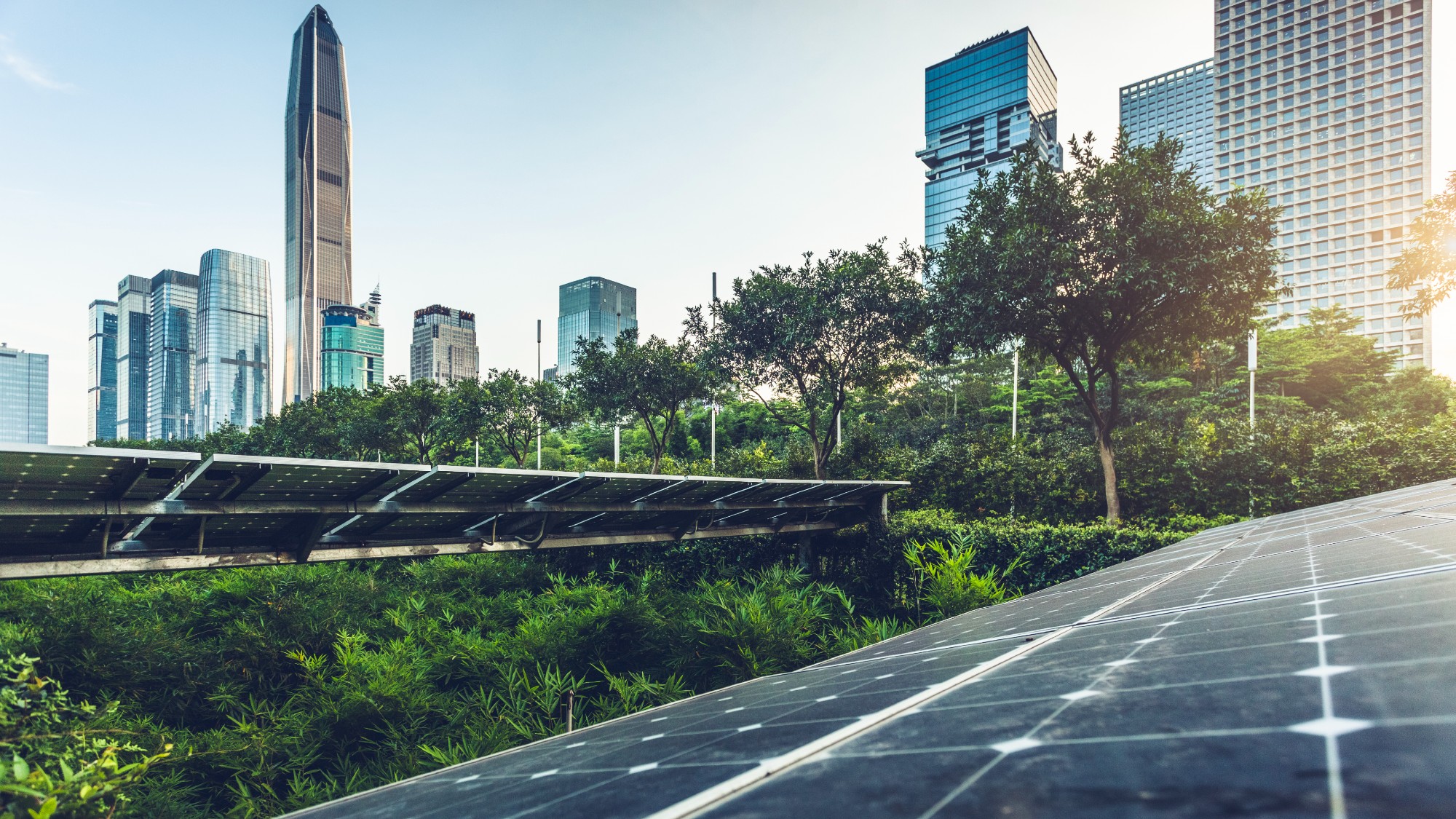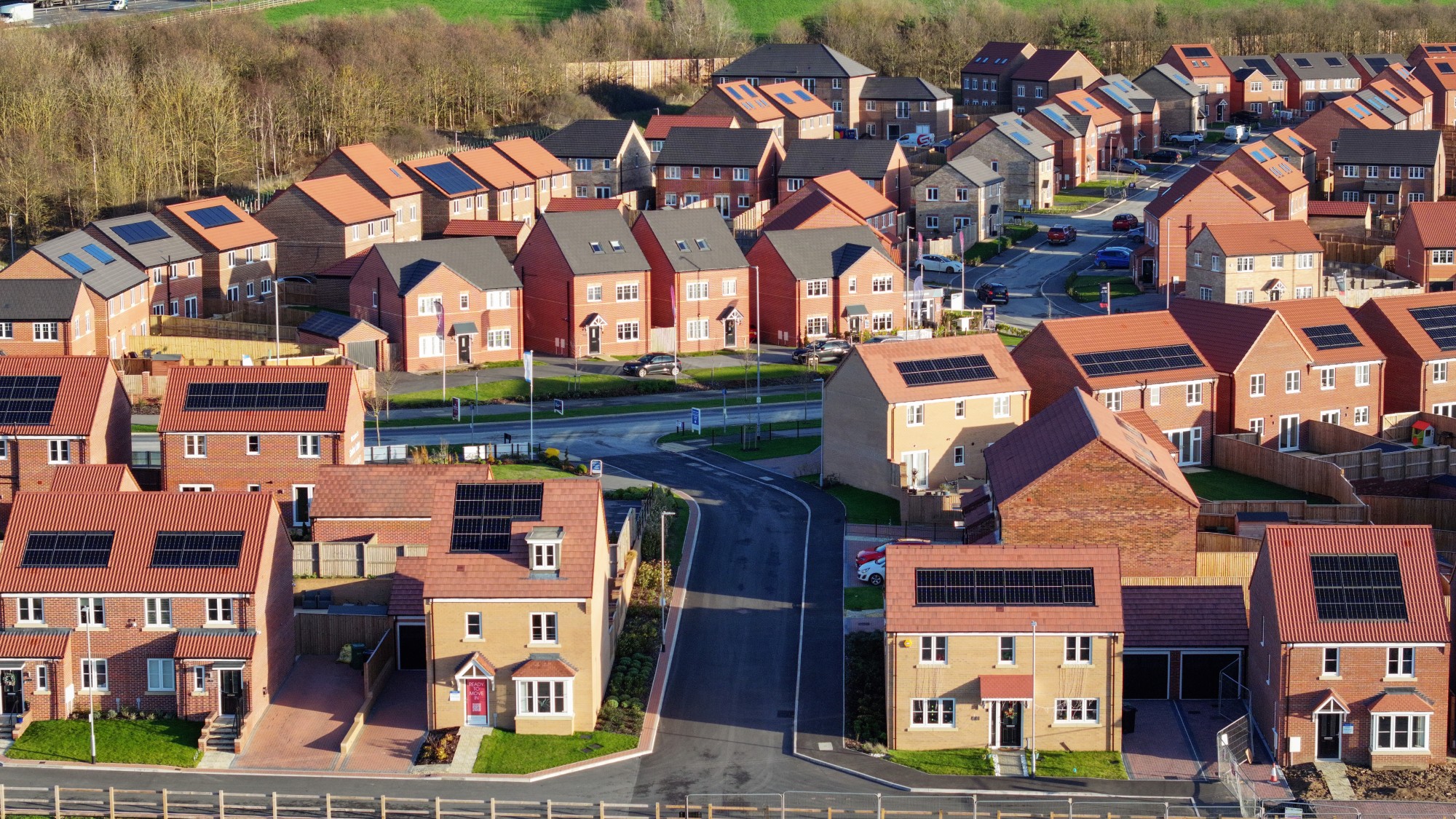How would reaching net zero change our lives?
Hitting climate target could bring many benefits but global heating would continue

A free daily email with the biggest news stories of the day – and the best features from TheWeek.com
You are now subscribed
Your newsletter sign-up was successful
The government has announced an ambitious programme to complete the UK's net zero transition to clean energy by 2030. Implementing the "colossal" Clean Power 2030 plan will cost £40 billion a year until the end of this decade, but the government has decided it's "worth the risk", said Sky News.
Although the "rapid roll-out" of clean energy and energy efficiency measures for the transition is "capital-intensive upfront", said the LSE's Grantham Research Institute, it could "serve to make the UK economy resilient, productive and competitive in the long term.
What did the commentators say?
The world our descendants will occupy will be "a very different place", with "wholesale changes" to "homes, modes of transport, and the landscape that surrounds them", said RBC Wealth Management. That means "decarbonised homes", "ubiquitous" electric vehicles and a "reshaped landscape", including cities with "more green spaces to lock up CO2" among a raft of other changes.
The Week
Escape your echo chamber. Get the facts behind the news, plus analysis from multiple perspectives.

Sign up for The Week's Free Newsletters
From our morning news briefing to a weekly Good News Newsletter, get the best of The Week delivered directly to your inbox.
From our morning news briefing to a weekly Good News Newsletter, get the best of The Week delivered directly to your inbox.
Investment in clean technologies can "induce creativity and innovation across the whole economy", said the Grantham Research Institute. That includes addressing problems that "currently threaten people's wellbeing and limit productivity", such as air pollution, which costs the NHS and businesses "more than £20 billion each year".
By the 2040s, the electricity that solar panels produce "promises to be less than half as expensive as the cheapest available today", said The Economist. "Much of the world" will feel "energy-rich". It will be a "new and transformational" era, particularly for Africa, where 600 million people "still cannot light their homes".
But the "most consequential" developments are likely to be "the things that nobody has yet thought of". The "radical abundance" of clean, low-ecost energy will set the "tiny Ferris wheels of the mind" spinning with "new possibilities".
Even if we hit net zero in the next few decades, this "will not bring an immediate end to the global heating problem", said Andrew King and Tilo Ziehn on The Conversation. Earth's average temperature would "continue to rise slowly" under net zero emissions, albeit "at a much slower rate than we see today", while the oceans will keep getting warmer for centuries. But "that's not to say" the world shouldn't "push" to reach net zero as fast as possible, because "the sooner we get there", the "less damaging change" the planet will experience "in the long run".
A free daily email with the biggest news stories of the day – and the best features from TheWeek.com
What next?
Everything involved in Keir Starmer's plan, from "reforming the retail market for energy", to "smart metering", EV charging, connecting heat pumps and new technologies that can "store excess electricity", will "all have to happen in parallel", said Sky News.
And to get all the "clean, locally produced power" to "where it is actually needed" will require an overhaul of the National Grid "not seen since the current system was planned in the 1950s".
So the plan will be "a genuine test" of whether Britain can "get building again" and of Starmer's "political stomach" when it "hits the inevitable bumps along the way".
Chas Newkey-Burden has been part of The Week Digital team for more than a decade and a journalist for 25 years, starting out on the irreverent football weekly 90 Minutes, before moving to lifestyle magazines Loaded and Attitude. He was a columnist for The Big Issue and landed a world exclusive with David Beckham that became the weekly magazine’s bestselling issue. He now writes regularly for The Guardian, The Telegraph, The Independent, Metro, FourFourTwo and the i new site. He is also the author of a number of non-fiction books.
-
 Samurai: a ‘blockbuster’ display of Japanese heritage
Samurai: a ‘blockbuster’ display of Japanese heritageThe Week Recommends British Museum show offers a ‘scintillating journey’ through ‘a world of gore, power and artistic beauty’
-
 BMW iX3: a ‘revolution’ for the German car brand
BMW iX3: a ‘revolution’ for the German car brandThe Week Recommends The electric SUV promises a ‘great balance between ride comfort and driving fun’
-
 Munich Security Conference: a showdown between Europe and Trump?
Munich Security Conference: a showdown between Europe and Trump?Today’s Big Question Report suggests European leaders believe they can no longer rely on the US for military support – but decoupling is easier said than done
-
 The plan to wall off the ‘Doomsday’ glacier
The plan to wall off the ‘Doomsday’ glacierUnder the Radar Massive barrier could ‘slow the rate of ice loss’ from Thwaites Glacier, whose total collapse would have devastating consequences
-
 Can the UK take any more rain?
Can the UK take any more rain?Today’s Big Question An Atlantic jet stream is ‘stuck’ over British skies, leading to ‘biblical’ downpours and more than 40 consecutive days of rain in some areas
-
 As temperatures rise, US incomes fall
As temperatures rise, US incomes fallUnder the radar Elevated temperatures are capable of affecting the entire economy
-
 The world is entering an ‘era of water bankruptcy’
The world is entering an ‘era of water bankruptcy’The explainer Water might soon be more valuable than gold
-
 Zero-bills homes: how you could pay nothing for your energy
Zero-bills homes: how you could pay nothing for your energyThe Explainer The scheme, introduced by Octopus Energy, uses ‘bill-busting’ and ‘cutting-edge’ technology to remove energy bills altogether
-
 Climate change could lead to a reptile ‘sexpocalypse’
Climate change could lead to a reptile ‘sexpocalypse’Under the radar The gender gap has hit the animal kingdom
-
 The former largest iceberg is turning blue. It’s a bad sign.
The former largest iceberg is turning blue. It’s a bad sign.Under the radar It is quickly melting away
-
 How drones detected a deadly threat to Arctic whales
How drones detected a deadly threat to Arctic whalesUnder the radar Monitoring the sea in the air